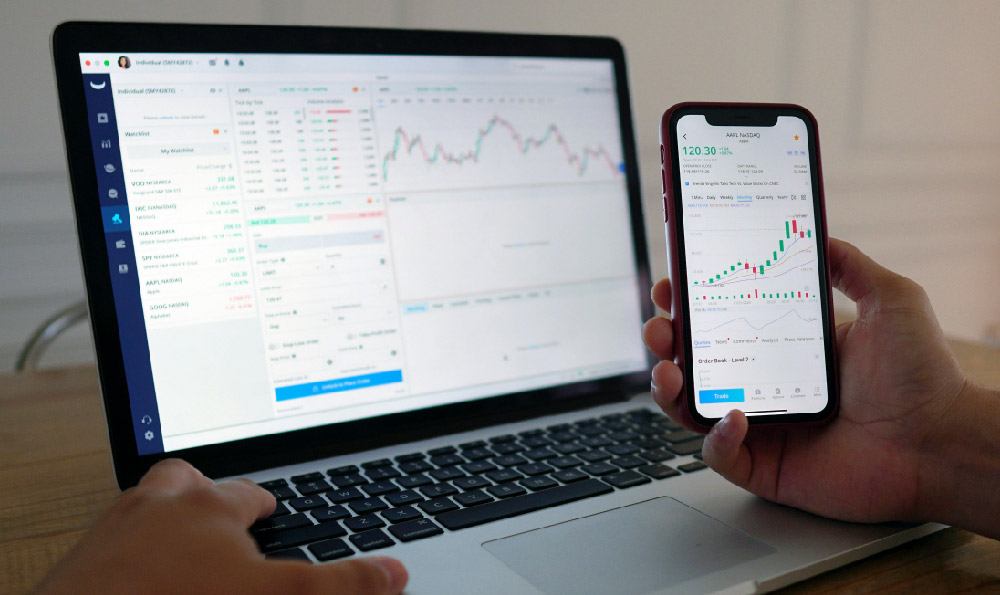Options Trading for Profit: How and Where?
Okay, I'm ready. Here's an article addressing options trading for profit, with the specified constraints:
Options trading, often perceived as complex and risky, can be a powerful tool in a savvy investor's arsenal, offering the potential for substantial profit. Understanding the mechanisms, strategies, and associated risks is crucial before venturing into this dynamic market. This exploration delves into the 'how' and 'where' of options trading, illuminating pathways to potential profitability.
At its core, an option is a contract that gives the buyer the right, but not the obligation, to buy or sell an underlying asset (like a stock) at a specified price (the strike price) on or before a certain date (the expiration date). There are two fundamental types of options: calls and puts. A call option gives the buyer the right to buy the underlying asset, while a put option gives the buyer the right to sell it. Sellers, on the other hand, take on the obligation to either sell (in the case of a call) or buy (in the case of a put) the underlying asset if the buyer chooses to exercise their right.

The potential for profit in options trading arises from several avenues. One of the most common is directional speculation. If an investor believes a stock's price will rise, they might buy call options on that stock. If the stock price increases beyond the strike price plus the premium paid for the option, the call option becomes "in the money," and the investor can exercise the option to buy the stock at the strike price and immediately sell it at the higher market price, pocketing the difference (minus transaction costs). Conversely, if an investor expects a stock's price to fall, they might buy put options. If the stock price drops below the strike price minus the premium, the put option becomes in the money, allowing the investor to sell the stock at the higher strike price.
However, simply buying calls or puts carries significant risk. The value of an option is influenced by several factors, including the price of the underlying asset, the time remaining until expiration, volatility, and interest rates. If the investor's prediction about the asset's price movement is incorrect, or if the price doesn't move sufficiently within the time frame, the option can expire worthless, resulting in a total loss of the premium paid. Time decay, often referred to as "theta," erodes the value of options as they approach their expiration date, particularly impacting options that are "out of the money."
Beyond directional speculation, more sophisticated strategies can be employed. One such strategy is covered call writing. In this approach, an investor owns shares of a stock and sells call options on those shares. The investor collects the premium from selling the call option, providing a source of income. If the stock price remains below the strike price, the option expires worthless, and the investor keeps the premium. If the stock price rises above the strike price, the investor may have to sell their shares at the strike price, potentially limiting their profit but still benefiting from the premium received.
Another strategy is the use of spreads, which involve simultaneously buying and selling options with different strike prices or expiration dates on the same underlying asset. Examples include bull call spreads (buying a call option with a lower strike price and selling a call option with a higher strike price), bear put spreads (buying a put option with a higher strike price and selling a put option with a lower strike price), and iron condors (combining bull put spreads and bear call spreads). Spreads are generally designed to limit both potential profit and potential loss. These more complex strategies aim to capitalize on specific market conditions or volatility expectations.
So, where can one engage in options trading? The vast majority of online brokerage platforms offer options trading functionality. Popular choices include platforms like Interactive Brokers, TD Ameritrade (now part of Schwab), Robinhood, and various bank-affiliated brokerage firms. The best platform for an individual will depend on their specific needs and preferences, including factors like commission structure, platform features, research resources, and customer support.
When selecting a brokerage, it's crucial to consider the risk disclosure requirements. Most brokers require investors to be approved for options trading before they can begin, based on their experience, financial situation, and understanding of the risks involved. It's also essential to carefully review the brokerage's rules and regulations regarding options trading, including margin requirements and exercise procedures.
Furthermore, the regulatory landscape of options trading is important. In the United States, the Securities and Exchange Commission (SEC) regulates the options market, and the Options Clearing Corporation (OCC) serves as the guarantor for options contracts, ensuring that obligations are met. Understanding these regulatory frameworks helps investors navigate the market responsibly and protect themselves from fraud or manipulation.
Before diving in, prospective options traders should dedicate time to education. Numerous resources are available, including online courses, books, seminars, and mentorship programs. It is also recommended to start with a paper trading account, which allows you to simulate options trading without risking real money, providing valuable experience in executing trades and managing risk.
Ultimately, success in options trading requires a combination of knowledge, discipline, and risk management. While the potential for profit is significant, the potential for loss is equally substantial. A well-defined trading plan, a thorough understanding of options strategies, and a commitment to continuous learning are essential for navigating this complex and rewarding market. Investors should carefully consider their risk tolerance and financial goals before engaging in options trading and should never invest more than they can afford to lose.















